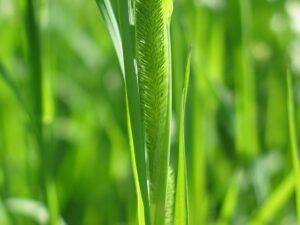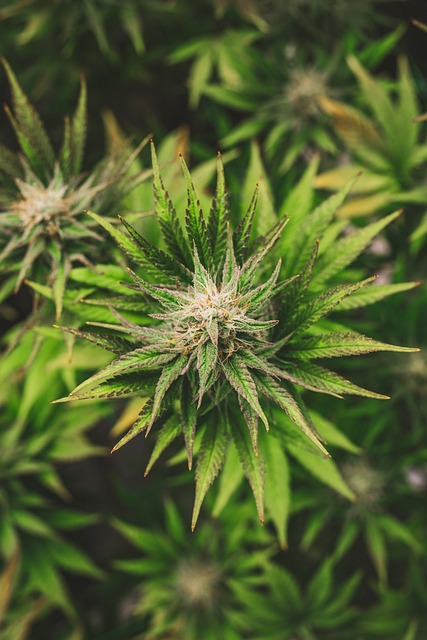
𝕎-9-tetrahydrocannabinolic acid (THCA) and cannabidiol (CBD) are non-psychoactive compounds found in cannabis plants, each offering distinct therapeutic potential. THCA buds, which are the raw form of THC, are sought for their analgesic, anti-inflammatory, and neuroprotective properties without inducing a high, making them suitable for various health conditions like chronic pain and neurodegenerative diseases. CBD buds are known for their calming effects, effectiveness in managing anxiety, reducing inflammation, and assisting with epilepsy, making them ideal for those who prefer non-psychoactive options or require daytime use. The choice between THCA and CBD buds depends on individual health goals and desired experiences. Both compounds interact differently with the endocannabinoid system, providing unique benefits that can be leveraged for therapeutic purposes. Understanding the differences between THCA and CBD buds is crucial for consumers looking to harness the full potential of these cannabinoids for their wellness needs.
Exploring the nuanced effects and potential benefits of THCA flower, this article delves into a comprehensive examination of its side effects, distinguishing it from its counterpart, the CBD bud. We’ll dissect the chemical structure of tetrahydrocannabinolic acid (THCA) to understand its implications for its diverse effects. With an in-depth look at THCA flower side effects, users will gain critical knowledge to navigate its use safely. From the entourage effect to dosing and safety considerations, this piece covers a spectrum of topics, ensuring readers are well-informed about the psychological and physical impacts of THCA consumption. We’ll explore the influence of bioavailability on side effects, the relationship between regular use and tolerance/dependence, and offer best practices for mitigating adverse reactions. The article also addresses the legal status of THCA products, how it differs from other cannabinoids in terms of side effect profiles, its interaction with pharmaceuticals, and provides a platform for real-life user experiences. With a focus on safe use, we’ll conclude with recommendations and future research directions to enhance understanding and responsible consumption of THCA buds.
- Unveiling THCA Flower: An Overview of its Properties and Potential Benefits
- THCA Bud vs CBD Bud: Comparative Analysis of Effects and Usage
- The Chemical Structure of THCA and Its Implications for Effects
Unveiling THCA Flower: An Overview of its Properties and Potential Benefits
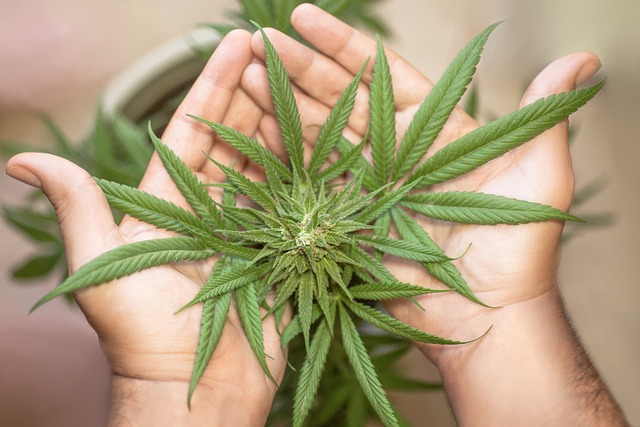
Cannabinoid research continues to shed light on the diverse effects and benefits of various compounds within the cannabis plant. Among these, Tetrahydrocannabinolic Acid (THCA) has garnered attention for its potential therapeutic properties. THCA is the precursor to the more well-known psychoactive compound, delta-9-tetrahydrocannabinol (THC), but it possesses distinct characteristics and effects when consumed in its raw form. Unlike its decarboxylated counterpart, THCA does not induce psychoactive effects, making it an attractive option for those seeking the potential health benefits of cannabis without the high.
The THCA bud, often harvested and dried from mature cannabis plants, is distinct from the CBD (cannabidiol) bud in several ways. While both contain significant amounts of their respective non-psychoactive cannabinoids, THCA is characterized by its potential to interact with the body’s endocannabinoid system, which may influence various physiological processes. Preliminary studies suggest that THCA might offer analgesic, anti-inflammatory, and neuroprotective properties, making it a subject of interest for a range of conditions from chronic pain to neurodegenerative diseases. On the other hand, CBD buds are renowned for their calming and relaxing effects, as well as their potential to alleviate anxiety, reduce inflammation, and aid in the treatment of epilepsy. Both THCA and CBD buds offer unique benefits, and understanding their differences can help consumers make informed decisions based on their specific needs and health goals. As research continues to expand, the full spectrum of benefits provided by THCA flower is becoming more apparent, offering a promising alternative within the realm of cannabis-derived therapies.
THCA Bud vs CBD Bud: Comparative Analysis of Effects and Usage
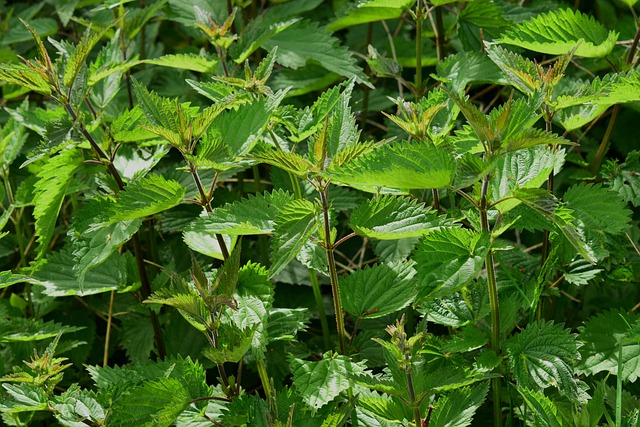
Delta-9-tetrahydrocannabinolic acid (THCA) and cannabidiol (CBD) are two prominent compounds found in cannabis plants, each with distinct properties and effects. THCA buds, which contain the raw form of THC before it is decarboxylated into THC through heating, offer a different experience compared to CBD buds, which are rich in CBD, a non-psychoactive compound.
In the realm of therapeutic use, THCA buds may provide analgesic and neuroprotective effects due to its affinity with the body’s endocannabinoid system. Users report a range of sensations from invigorating to calming, depending on the strain and dosage. Conversely, CBD buds are celebrated for their ability to alleviate anxiety, reduce inflammation, and epileptic seizures without the psychoactive ‘high’ associated with THC. The lack of psychoactivity makes CBD buds suitable for individuals seeking relief from symptoms during daylight hours or those who prefer not to experience altered states of consciousness.
Both THCA and CBD buds have unique applications and effects, and their choice often depends on the specific needs and preferences of the user. While THCA buds may offer a broader range of psychoactive benefits, CBD buds provide a wide array of wellness properties that are beneficial for both mental and physical health without altering cognitive function. Understanding the nuanced differences between THCA bud vs CBD bud is crucial for users to make informed decisions based on their desired outcomes.
The Chemical Structure of THCA and Its Implications for Effects
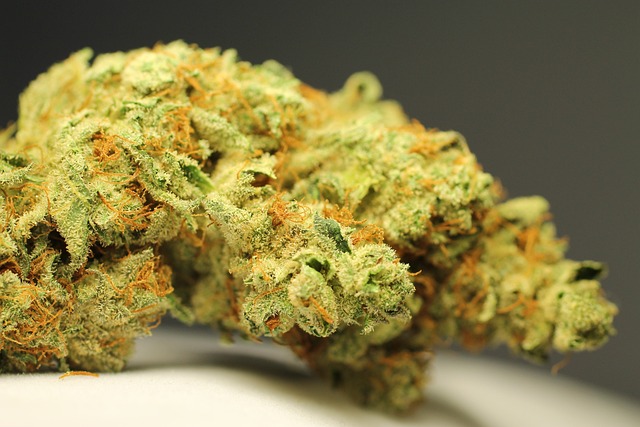
Delta-9-tetrahydrocannabinolic acid (THCA) is a cannabinoid found in the raw cannabis plant, which, when heated or exposed to certain solvents, decarboxylates into the more well-known psychoactive compound delta-9-tetrahydrocannabinol (THC). THCA exists naturally within both hemp and marijuana plants, with its chemical structure characterized by a pentyl side chain attached to an aromatic ring. This structural distinction is significant as it influences the cannabinoid’s effects. Unlike THC, THCA does not bind effectively to the CB1 receptors in the brain, typically associated with psychoactive effects. Consequently, THCA-rich cannabis flowers are often sought after for their potential therapeutic benefits without the intoxicating high that characterizes its decarboxylated counterpart.
In comparison to CBD (cannabidiol) buds, THCA buds offer a distinct profile of effects due to their unique chemical composition. THCA is non-psychoactive and interacts with the endocannabinoid system in ways that suggest potential anti-inflammatory, anti-nausea, anti-spasmodic, and neuroprotective properties. While both THCA and CBD buds are used for medicinal purposes, their effects are different. THCA’s potential benefits come from its ability to modulate the immune response and reduce pain and inflammation, which makes it a subject of interest in various therapeutic applications. The choice between THCA and CBD buds often comes down to the specific therapeutic goals and desired effects of the user. Understanding the nuanced differences in their chemical structures is crucial for individuals seeking to harness their distinct benefits effectively.
In conclusion, the exploration into the properties and potential benefits of THCA flower, as well as a detailed comparative analysis with its counterpart, CBD bud, provides a nuanced understanding of their distinct effects and usage. The chemical structure of THCA underpins its unique interactions within the body, distinguishing it from CBD. While both have their merits, discerning consumers can make informed decisions based on individual needs and preferences, ensuring a tailored experience. It’s always advisable to consult with healthcare professionals when incorporating THCA or CBD products into one’s wellness regimen, to navigate the potential effects responsibly.

